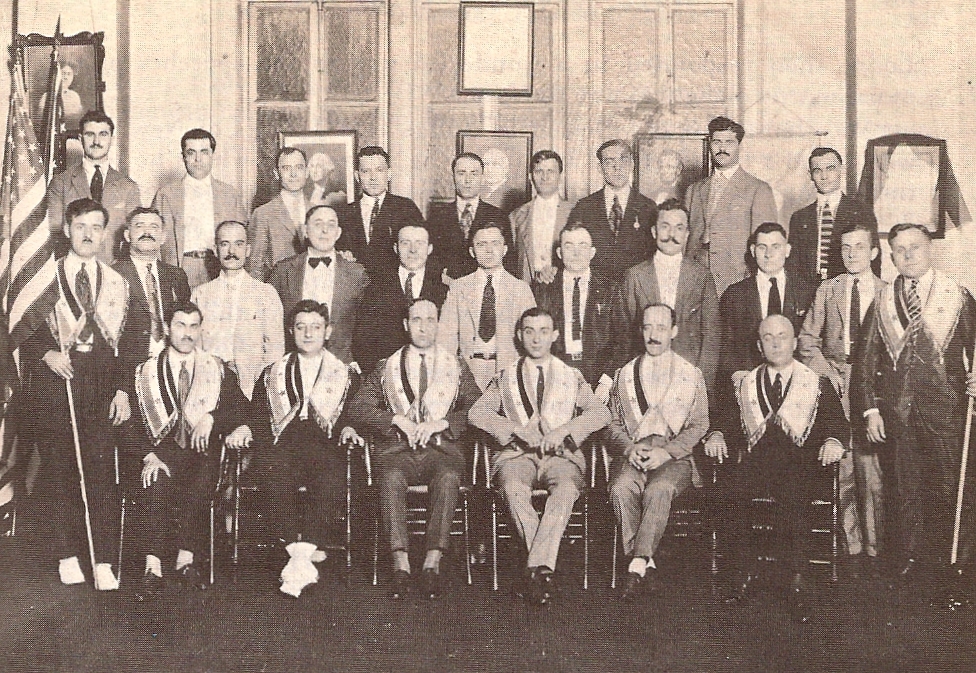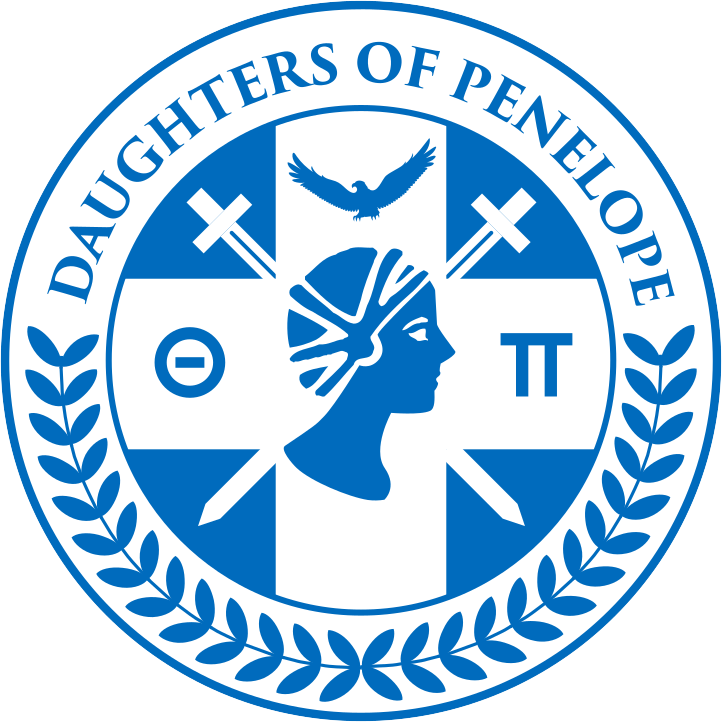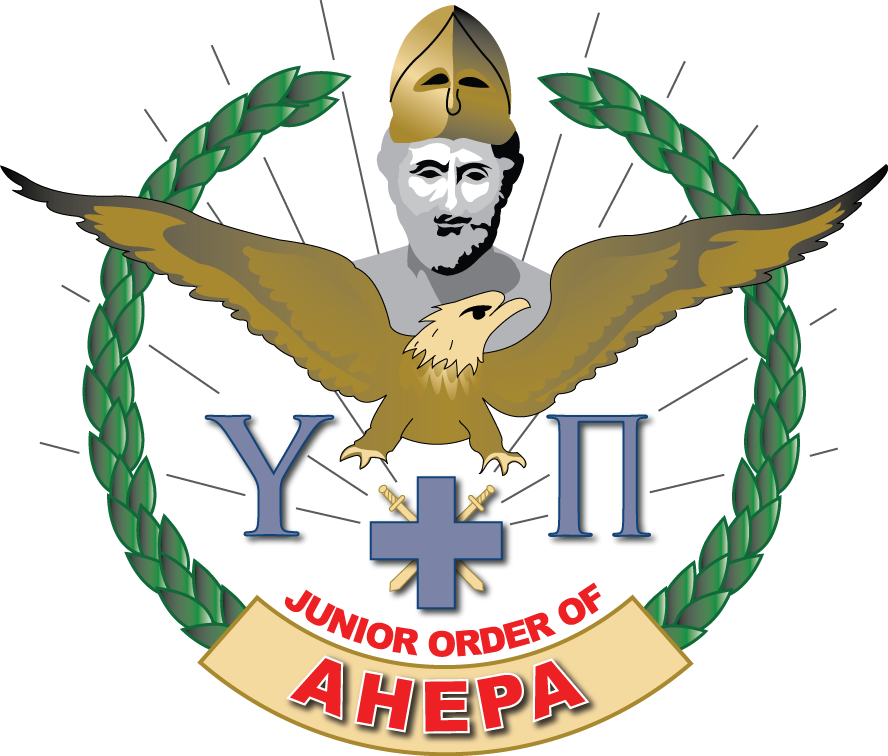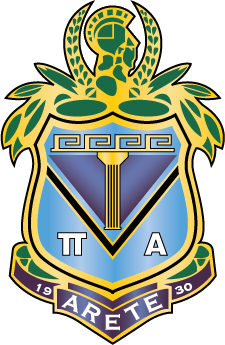About AHEPA Chapter 24
Chapter OFFICER PAGEThe American Hellenic Educational Progressive Association | AHEPA

Our Mission
The mission of the AHEPA Family is to promote Hellenism, Education, Philanthropy, Civic Responsibility, and Family and Individual Excellence.
Hellenism
An important component of AHEPA's mission is to create an awareness of the principles of Hellenism to society. These principles include a commitment to humanity, freedom, and democracy. The preservation and promotion of these ideals is where AHEPA has, and always will be, deeply committed.
AHEPA educates the community on these matters through symposia, forums, and conferences.
Education
AHEPA's commitment to education has been well documented throughout its history. Over $4 million is endowed at the local, district and national levels toward the use of scholarships and a half-million dollars is awarded annually. Thousands of young men and women have benefited as recipients of AHEPA scholarships at these various levels. The scholarship program at the national level is administered by the AHEPA National Educational Foundation. It offers scholarships to a wide variety of students. Recipients are traditional and non-traditional students; seminarians, including those entering Holy Cross Greek School of Theology; and high school seniors, college and post-graduate students who are looking to become tomorrow's leaders. The preservation of Hellenic or Classical Studies programs on college campuses is an important issue for the AHEPA Educational Foundation. A subcommittee of the Foundation, the Hellenic Cultural Commission, actively works to support the study of the Classics at universities. In addition, educational programs such as "Journey to Greece" and Washington Internships are sponsored by the Foundation.
Philanthropy
Philanthropy and volunteerism have been pillars of strength for AHEPA. From natural disaster relief to raising funds for the elimination of life-threatening diseases to making significant contributions to our local neighborhoods, AHEPA is at the forefront of charitable giving.
Family and Individual Excellence
What makes AHEPA unique from other organizations is the creation of the AHEPA Family. Together with three affiliated organizations, the AHEPA Family works as a unit toward the fulfillment of a common mission. Combined, the four organizations have contributed well over a billion dollars to national projects throughout their history.
Chapter History
AHEPA "24" is the number of the AHEPA Athens 24 Chapter in Boston, MA constituted in late 1923. Only three of the 32 chapters established between the first AHEPA Chapter in Atalnta and October 14, 1923 were in cities north of the Mason-Dixon Line, Chapter 24 was one of those three. It is the 24th Chapter of the order and family of AHEPA and has a proud history.
Boston’s Athens Chapter 24 was constituted on November 5, 1923. The following 31 Brothers petitioned for a Charter; George Demeter, Paul Riskas, Arthur Stefias, P. J. Vavoudis, G. Johnson, William Pappas, Thomas Constance, Nick Stamatos, George Tsougros, John Avramides. E. Campanis, G. Haralambipes, Christ Doukas, Thomas Doukas, S. P. Kalliris, George Plakias, Anton Poulis, H. Barrows, Alex Gaviotakis, James Kaptetzakis, Theodore Flessas, John Xemakakis, A. Terzis, S. P. Demeter, L. Chakalis, P. Koutroubis, G. Arvanites, Luke Lydakis, N. Collatos and Harry Leonard.
From 1922 to 1945, AHEPA’s emphasis was on “Americanization”, citizenship programs and stood by English as the language of the country in which they’d chosen to live.
The third Supreme President of the Order of AHEPA was also our first Chapter President, Brother George Demeter. George Demeter was a great parliamentarian who served two terms in the House of Representatives as the founder of the Hellenic Association of Boston. Brother George is the author of Demeter's Parliamentary Rules of Order that is still currently used by AHEPA, our Greek Orthodox Archdiocese of America and up till a few years ago many towns across the United States.
The Boston Athens Chapter meets in the Metropolis of Boston events center on Goddard Ave in Brookline, MA the second Tuesday of each month. Our chapter is known to be an active contributor to multiple charitable and educational programs in the Greater Boston area. The members of the chapter are known to be very active and close to each other and practicing the AHEPA values in their lives. In 1924, James Kakridas, a member of Boston Athens Chapter 24 said the following at the first banquet of our Boston Chapter:
“For God's sake can we not realize that The AHEPA is a jewel, a priceless gift and our only and greatest asset? We must achieve a big organization -- for our own sake, for our families' sake, for our relatives' sake. Let us live as in one big, happy family, with brothers all over the country! Keep out the dangerous characters, the disobedient, the wicked, the disorderly. Shut out the stubborn and those who are incapable of receiving instruction, light, and knowledge! Let us forget the past! Let us bury this dangerous element -- jealousy! Let us cooperate; let us esteem each other; let us work together and in harmony! If this is done, all of us will live a better life.”
This statement by Brother Kakridas perfectly depicts the spirit of our chapter and the entire AHEPA family.
National AHEPA History
AHEPA was founded on July 26, 1922 in Atlanta, GA in response to the evils of bigotry and racism that emerged in early 20th century American society. It was a time when the KKK, reorganized in 1917 and thriving on militant patriotism, was a enjoying a renaissance of hatred in the Southern United States. In these dark times, George Polos and John Angelopoulos agreed there was a real need for a patriotic organization that would direct and channel the energy of the Greek community in the United States, a group that would be politically nonpartisan and religiously non-sectarian. They presented the idea to a group of 25 members of the Atlanta Greek Community, 17 of which offered their support. On July 26, 1922, the American Hellenic Educational Progressive Association-the Order of AHEPA was too a reality.
The first of 75 national conventions were held in Atlanta in 1923. The second conclave gathered in Washington DC in September of 1924. The delegates agreed that the Order should have its headquarters in the nation’s capital, even though Washington had no enormous Greek community.
At this convention, the 47 delegates laid a wreath at the Tomb of the Unknown Soldier and honored Greek American World War I hero George Dilboy, who was originally from Asia Minor. They also called to the White House, where they were cordially received by President Calvin Coolidge, AHEPA was making its presence known and from the very start.
AHEPA’s tradition is a proud one. Its legacy is a real one. Its mission goes on, setting sight on new horizons. AHEPA’s active role in the Greek American community’s development and achievements is a portrait of unselfish public service. Some of the most important works of AHEPA throughout the years are listed below. Of course, this list is not extensive, it is merely a summarization so that the reader can get familiar with some of the work of this truly remarkable organization.
For the U.S. War Bond Drive for World War II, AHEPA raised $263 million.
1940s: Seven Health Centers became operational, among them the AHEPA Wing of Evangelismos Hospital in Athens.
1950s: The AHEPA Hospital in Thessaloniki opened in 1951. Later in the same decade, AHEPA raised $92,000 and completed the Hall of Boys, St. Basil Academy, New York.
1960s: AHEPA School Building, St. Basil Academy, was completed in 1962 after a $245,000 donation.
1970s: The AHEPA Athletic program was formed in 1970. It includes softball, golf, bowling, and basketball, with regional and national tournaments held annually. In the mid-1970s, the AHEPA National Educational Foundation was formed thanks to a very generous donation of $3 million by a member of the organization.
1980s: Three additional Halls of Boys were dedicated to St. Basil Academy in 1981, after receiving a $1.5 million donation. In 1983, the National Housing Corporation was established to build housing projects for HUD. AHEPA collected more than $500 million and was able to complete over 92 HUD projects for low-income citizens in 41 cities located in 29 states. In the late 1980s, AHEPA created the Bone Marrow Registry to help find donors for bone marrow transplants.
Between 1986 and 1991, AHEPA donated over $400,000 to the Statue of Liberty/Ellis Island Restoration project, earning special recognition by the US Department of Interior.
1990s: $775,000 for a sculpture named Tribute that was dedicated in Atlanta’s Olympic Centennial Park in 1996 as a gift of Greek- Americans for the Olympic Games. In 1999, $220,000 was sent by AHEPA to the victims of the earthquake in Athens.
2000s: $110,000 was raised in 2000 for the Marshall Statue on the grounds of the US Embassy in Athens. In 2001, AHEPA contributed $150,000 to the National Tragedy Relief effort following the September 11 terrorist attacks.
2010s: With the recent economic crisis having especially targeted Greece, AHEPA has helped raise $650,000 in support of donating the country much needed medical supplies and has also started giving $10,000 a month to help curb hunger, which has already reached $200,000 and this giving will continue.
The American Hellenic Educational Progressive Association (AHEPA) is now the largest and oldest American-based, Greek heritage grassroots membership organization. The organization’s commitment remained strong since its founding, almost 100 years ago. Although most of the membership is composed of Americans of Greek descent, application for membership is open to anyone who believes in the mission of the organization. To apply Contact a Brother.
For more information on AHEPA please visit National's Website.
At the 1926 AHEPA convention in Philadelphia, a Junior Order, the Sons of Pericles, was organized for the 12-21 age group. The first Sons chapter was established a short time later in Manchester, New Hampshire. In time AHEPA would add auxiliaries for women and young women, too, The Daughters of Penelope and the Maids of Athena would round out a complete "AHEPA Family.”
AHEPA's Eight Basic Ideals - The Octet of Hellenism
There are eight basic ideals that make up this system of values, and we may call them from the Octet of Hellenism. These eight basic values are uniquely Greek. They found their birth in Greek soil, and no civilization prior to the Greeks possessed them. They are also called the 8 Hellenic Values. Each AHEPAN swears to live by them and hold these sacred in his heart. These values have been handed down to us and are the foundations of Western Democratic civilizations.
1. The Search for Truth. For the Greeks, truth was the concern of everyone.
2. The Supremacy of Reason. Truth is searched through the use of reason.
3. The Encouragement of the Free Mind. Only an open mind can use reason to attain truth.
4. The Pursuit of Excellence. Everyone is encouraged to reach the sublime heights of his ambition.
5. The Appreciation of Beauty. Beauty exists all around us, and we can create it.
6. The Love of Life. The Greeks expressed a joy in living and had an optimistic outlook.
7. The Passion for Freedom. A free person and a free people can release energies for progress.
8. The Respect for the Individual. This was a revolutionary idea and it created DEMOCRACY.
Affiliated Organizations
 Daughters of Penelope
Daughters of Penelope
Women Over 18
Established November 16, 1929 as the Women's Affiliate of AHEPA. It is the first Greek American women's organization in the United States. One of its crowning achievements is Penelope House, a shelter for battered women in Mobile, Alabama. It is the first shelter for battered women and their children in that state.
Learn More Sons of Pericles
Sons of Pericles
Men 14 to 24
Established February 3, 1926 and was officially recognized as the Junior Order of AHEPA in 1928. Boston Sons of Pericles HUB Chapter 27 was constituted on February 15, 1929. In November, 2020, Chapter 27 was again reactivated with 15 new Sons ready to pick up the mantle from their predecessors.
Learn More Maids of Athena
Maids of Athena
Women Under 18
Established July 5, 1930 as an international philanthropic and fraternal organization and the junior auxiliary to the Daughters of Penelope. The sisterhood quickly grew among young Greek women and today claims chapters across the US, Canada, and Greece. The Maids of Athena strive to achieve the ideals of Athena, as well as promote the Principles of our Order: Sisterhood, Service, Citizenship, Hellenism, Family, and Arete.
Learn MoreThe two youth groups have combined to contribute to such worthy causes as: Muscular Dystrophy, Deborah Heart and Lung Foundation, the Special Olympics, St. Basil Academy and Cooley's Anemia research.
Get in Touch!
Please send a message and we'll get back to you as soon as possible!
And thank you for taking the time to contact us!